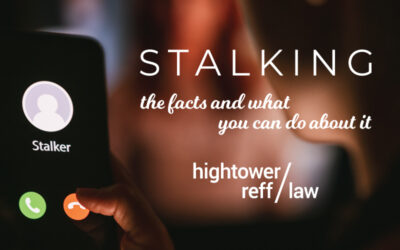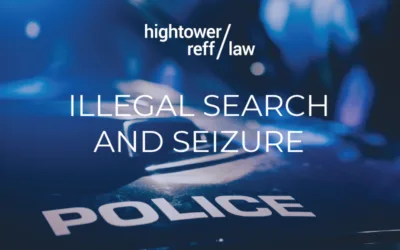You probably never think your child will be arrested (technically, in Nebraska, with someone under 18, the law calls it “temporary custody,” not arrest). But like any disaster, it’s best to plan for the unexpected and have these discussions with your teen ahead of time should the worst happen.
Even the best kid can make a mistake. And innocent people get arrested. It could happen to your teen. They should be prepared if it does, and so should you.
Here are four things you should know and discuss in case your teen is taken into police custody:
1. Be quiet, but don’t be a jerk.
When an underage person taken into police custody, it’s not the same as when an adult is arrested. The police may not let the child make a phone call, except to call a lawyer. Nebraska law says police “shall” take “reasonable” measures to contact the child’s parents, but the term “reasonable” is subject to interpretation. In practice, parents may not be called right away.
In the meantime, the teen should not tell the police anything except their name, address and phone number and provide their State issued photo identification, if they have one.
It’s best that they stay silent until a lawyer hired to represent their interests speaks to them. No matter what the police say to them, they should tell the officers that they want to talk to a lawyer. Tell your teen to be nice about it though. They can say something like: “I’m sorry, but my parents told me I’m to only give you my name, address and phone number and ask you to call them and tell you that I need a lawyer.”
2. Get a lawyer right away.
If your teenager is arrested, they have no right to see you and you have no right to see them. They do, however, have a right to have an attorney present during police questioning. Make sure they know that.
So they need to ask for a lawyer. Starting to see a theme? The most important thing you can take away from this article: make sure your teen knows if they are arrested they need to ask for a lawyer and not make any statements whatsoever to police.
3. Don’t think the police officer is your BFF or your teenager’s.
The police officer may be a very nice person who wants to do what’s right, but they are there to close a case. They are not your friend or your teen’s friend. Don’t talk to them and don’t let your teen talk to them without a lawyer. They aren’t going to talk themselves out of trouble, and you aren’t going to talk them out of it either
Also, the police may have you believing that it’s in your child’s best interest to “get help” in the form of criminal prosecution or juvenile court involvement for whatever legal infraction or crime they are accused of. That is usually not the best solution to whatever may be troubling your teen. Remember, the criminal judicial process isn’t therapy. The criminal justice system’s main purpose is to protect society, not help your child.
The juvenile justice system, on the other hand, (which is separate from the adult criminal court) serves a dual role by protecting society and trying to help troubled kids, but many families find that maintaining private control over their family matters is preferable to the State taking over – which is what happens when your teen is involved in juvenile court. Also, depending on your their age, there is no guarantee your teen’s case won’t end up in adult criminal court.
4. Remember it’s not about you.
If law enforcement or social workers start questioning you (the parent) about things involving you, see above. Talking without a lawyer present often does more harm than good. Focus on the issue at hand and get a lawyer.
This article should not be construed as legal advice. Situations are different and it’s impossible to provide legal advice for every situation without knowing the individual facts.




